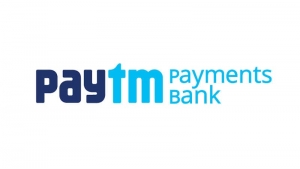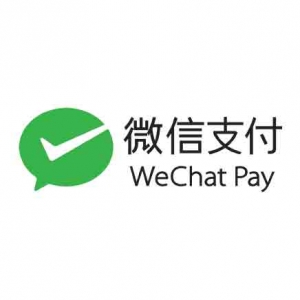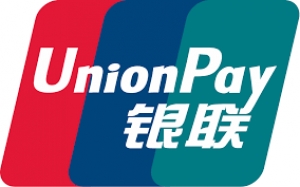The India digital payments market makes for a fascinating contrast to China's. Unlike China, India has allowed foreign tech giants to compete on a mostly level playing field against its homegrown firms. In fact, Chinese tech giants are strategic investors in some of those Indian fintechs. Competition in the surging Indian payments market - Credit Suisse reckons it will grow fivefold to US$1 trillion by 2023 - is fierce. Google Pay is the market leader followed by Walmart-backed PhonePe according to research firm Razorpay. India's own Softbank-backed Paytm has fallen behind. AmazonPay is also vying for market share.
Entering into this fray is WhatsApp Pay, the digital wallet of the global messaging giant. WhatsApp Pay is aiming to do what in India what WeChat did in China: Segue from chatting and photo sharing into digital banking on the back of a popular messaging app. The difference is that WhatsApp Pay has a lot more competition. The only major digital wallet WeChat faced was Alipay. Interestingly though, WhatsApp has about as many users in India - 400 million as WeChat had when it expanded into digital banking in 2014. Today, WeChat has more than 1 billion users, mostly in China.
Ant Financial's international expansion runs on two separate tracks. The first is a concerted push into emerging markets, especially in South Asia. In these countries, Ant is laying the groundwork to become a primary provider of digital financial services to the local market. In many cases, incumbents and digital infrastructure are both weak. Ant sees opportunities to leverage both its banking and technology acumen in countries such as Bangladesh, Pakistan and Nepal.
It's a very different story in Western Europe. There, Ant is making gradual inroads. The Chinese fintech giant says it wants to serve the local market, but its products are designed for Chinese consumers and businesses. European incumbents, meanwhile, are often entrenched. There's no easy way around that. Growing in Western Europe through acquisitions in local companies makes more sense than going it alone. With that in mind, Ant recently took a minority stake in Swedish payments platform Klarna, the most valuable fintech startup in Europe alongside the UK's Revolut. Klarna is currently valued at US$5.5 billion and says that it has 80 million customers globally.
China's fintech giants have been quietly expanding in emerging markets that are participating in China's Belt and Road Initiative (BRI), which seeks to deepen Beijing's economic ties with the world. South Asia has become a geographic area of focus for Ant Financial's Alipay and Tencent's WeChat Pay. Aside from India, major South Asian nations have few domestic digital payments options, and limited foreign fintech investment. They offer Alipay and WeChat Pay a chance to gain a first mover's advantage.
That's why WeChat Pay has been determined to enter Nepal. Of course, Chinese tourists do visit Nepal, which is known for its resplendent scenery, but in the long run that market is not as crucial as local consumers and small businesses. In early February, Nepal Rastra Bank (NRB) approved WeChat Pay to operate in the South Asian country.
India fintech unicorn Paytm is shifting its focus to merchants in a bid to better compete with rivals Google Pay and Walmart-backed PhonePe. Paytm lags those two firms in its share of the transactions on India's state-backed real-time UPI payments system. As of October, UPI handled more than 50% of India's digital transactions, according to research firm Razorpay.
Credit Suisse reckons that India’s payments market could reach $1 trillion by 2023. Four or five major firms are likely to vie in India's payments market after consolidation, analysts say. A duopoly like Ant Financial-WeChat Pay in China is unlikely in the India market.
Reform is coming to China's US$27 trillion payments market belatedly. Very belatedly. U.S. credit-card giants have been trying to crack the market for years, to no avail. The market should have been open to them by 2006, per China's WTO commitments. But Beijing has hesitated to open its financial industry to foreign investment. It is finally signaling greater openness amidst the toughest business conditions China has faced in decades, perhaps since the beginning of economic reforms in 1978.
In mid-February, Mastercard announced it had received approval from the People's Bank of China (PBOC) to formally establish a bank-card clearing business in China. The green light for Mastercard comes three weeks after Beijing and Washington signed a phase-one trade deal to ease tensions in their strained economic relationship. American Express has also recently been granted approval to set up a bank-card clearing business in China. Both Mastercard and Amex are working with local Chinese partners in joint ventures.
India was one of the world's hottest fintech markets in 2019 with related venture-capital investment in the first half of the year reaching $286 million. Investors are especially keen on the payments segment, which an Assocham-PWC India study predicts will more than double to $135.2 billion in 2023 from $64.8 billion in 2019.
Japan is one of the few major economies in Asia with a strong preference for cash. About 80% of transactions in Japan are cash, compared to 40% in China and 11% in South Korea.
2020 Top Ten Asia Fintech Trends #4: China's digital payments giants expand across the Belt and Road
The fintech arms of Chinese internet giants Alibaba and Tencent have fought each other to a standstill in their home market. Together, Ant Financial (through its e-wallet Alipay) and WeChat Pay each hold about 90% of China's US$25 trillion mobile payments market, each with roughly an equal share. The duopoly looks stable for now.
The Indonesian central bank has approved WeChat Pay to operate in Southeast Asia's largest economy following a lengthy review period. WeChat Pay previously had been accepted at some Indonesian points of sale, but was not considered a legal form of payment. Bank Indonesia said in a statement that it granted WeChat Pay a permit to operate in the country on January 1. WeChat arrives as Indonesia introduces a nationwide standard QR payment system, Quick Response Indonesia Standard (QRIS). WeChat Pay will be accepted as a form of payment at merchants who support QRIS.
The private-equity unit of United Overseas Bank has co-led a US$31.2 million Series A funding round for the Thai fintech start-up Lightnet along with South Korea's Hanwha Investment and Securities and Japan's Seven Bank. Other investors included Singapore's Hopeshine Ventures, Signum Capital and Du Capital as well as Taiwan-based Uni-President Asset Holdings and Zhejiang-based HashKey Capital. Lightnet was co-founded by Chatchaval Jiaravanon, a member of the family that owns Thailand's Charoen Pokphand Group, and Tridbodi Arunanondchai, a tech entrepreneur and former investment banker.
American Express has been trying to enter the China market since before the 2008 Beijing Summer Olympics. As China's financial reform stalled, so did the US card giant's prospects in the world's largest consumer market. Now that Washington and Beijing have reached a phase-one trade deal, AmEx is finally poised to start doing business in China. In early January, shortly before the trade deal was signed, the People's Bank of China (PBOC) accepted AmEx's application to begin China operations.
Paytm is not just the most valuable Indian fintech firm: At US$16 billion, the digital payments company boasts the highest valuation of any Indian startup. It has long been considered a standout on the Indian fintech scene and counts Softbank and Ant Financial as its primary backers. Together, those two heavyweight investors own 60% of Paytm. In a recent interview with The Financial Times, Paytm founder Vijay Shekhar said, "We see ourselves on a healthy path."
Chinese investment in India has flourished over the past decade, reaching a $8 billion as of December 11, 2019, as compared to $200 million a decade earlier in 2009. A significant amount of that investment is coming from China’s two tech giants, Alibaba and Tencent, which have been aggressively investing in Indian start-ups. Many of these start-ups have crossed the $1 billion valuation threshold to become unicorns.
Alibaba and Ant Financial have invested resources in five unicorns out of the six companies they’ve invested in, while Tencent has done the same for seven out of twelve startups they’ve funded. This would mean that Alibaba and Tencent have invested in approximately half of the 31 unicorns in India, according to a report from Iron Pillar. A six-fold increase of Chinese investment in India was recorded between 2013 and 2014, coinciding with the strategic restructuring of Alipay to Ant Financial. Experts believe that a majority of Chinese capital in India come from Alibaba and Tencent, or its subsidiaries.
2019 was the year of the aspirational super app - aspirational because no platform has come anywhere near the dominance of China's WeChat. WeChat never branded itself as a super app. It simply became one thanks to a timely arrival, its appeal to Chinese users and lack of serious competition.
Rebranding a successful tech startup as a potential super app is a good way to keep the funding gravy train flowing. What could be more enticing to investors? Just ask the Southeast Asian ride-hailing giants Grab and Gojek. But China is a unique market, where users are happy to sacrifice choice for convenience and a frictionless experience. Elsewhere, notably India, users prefer different apps for different functions.
Vanguard hopes to break into the China market through its new partnership with Ant Financial. The two giants announced a joint venture on December 16, 2019, a financial roboadvisor service with an initial investment of approximately 20 million yuan (USD$2.86 million). Individuals with a minimum investment of 800 yuan (USD$115) may access the service, where they could build their investment portfolios from over 5,000 mutual funds offered by Ant Financial.
On December 3rd, Line Pay Taiwan and iPass Corporation announced a collaboration formed with partners in Japan, Thailand and Korea to expand its payment footprint. With an anticipated launch in Q1 2020, the move will open existing cashless payment ecosystems to more than 78 million users in the region and create more business opportunities for Line’s merchant partners. Additionally, Line Pay Taiwan also announced that it had renamed its joint service with iPass to “Line Pay Money” to highlight its primary usage as a digital wallet.
Cross-border transactions are often costly, incurring transfer fees, inter-bank fees and exchange rates that may add up to approximately 4-5 percent per transaction. Moreover, each country has its own set of regulations when it comes to payments. Therefore, incorporating cross-border payments onto its platform may rest in Line’s alliances in Japan, Korea and Thailand.
Taiwan's mobile payments are growing at a steady pace and are expected to hit a record NT$100 billion this year. Mobile payments reached NT$76.1 billion through the first nine months of the year, up 160% over the same period in 2018, according to data compiled by Taiwan's Financial Supervisory Commission (FSC). Mobile payments lagged in Taiwan for years but have picked up considerably on the back of proactive government efforts to reduce the dominance of cash. Because credit card penetration is high in Taiwan, many consumers prefer to tie in their existing credit cards to payment apps (often provided by their banks) on their handsets. This differs somewhat from mainland China, where direct debit from a bank account and stored-value wallets are more prevalent. Taiwan has a more fragmented digital wallet market as well, with no single firm able to dominate to the degree Alipay and WeChat Pay do in the mainland.
In 2019, Vietnam has become one of the hottest markets for fintech investment in Southeast Asia, second only to Singapore. Fintech funding in Vietnam surged to $410 million in the first nine months of the year, accounting for 36% of Asean's total, compared to just 0.4% during the same period a year earlier, according to a new report by PriceWaterHouseCoopers (PwC), the United Overseas Bank (UOB) and the Singapore Fintech Association (SFA).
Before fintech took China by storm, visitors to the country only had to remember one simple rule for payments: Make sure to carry sufficient cash. International credit and debit cards often were not accepted outside of five-star hotels and high-end department stores. Inevitably, there was some hassle involved, especially as international bank cards didn't always work at local ATMs. Ironically, now that it's much easier to withdraw cash from local Chinese ATMs with a global bank card, Chinese merchants prefer cashless payments. The trend in China is to swipe a smartphone to pay for just about any ordinary transaction: a coffee at Starbucks, a restaurant meal, a taxi, a bottle of water from a convenience store. It's a breeze as long as you have a Chinese bank account and the requisite digital wallets from Alipay and WeChat Pay on your handset.
Therein lies the problem for visitors to China. Many of them do not have a Chinese bank account, nor do they have WeChat Pay or Alipay installed on their smartphones. With cash being increasingly unwelcome, problems can arise easily. For instance, a shop may accept cash, but because so few transactions are done in cash, not be able to give a shopper proper change. If the merchant doesn't accept international credit cards, then the shopper is out of luck.
Malaysia's digital payments sector is heating up as fintechs and incumbents enter into partnerships in a bid to strengthen their positions in the fast growing market. Research by Visa shows that 70% of Malaysians prefer to shop at retail outlets where merchants accept digital payments. The Malaysian market of 32 million people has plenty of room to grow, as cash still accounts for 60% of transactions. JPMorgan Chase expects that fast adoption of e-payments by Malaysians could see digital wallets surpass cash use by 2021.
India fintech sensation Paytm plans to reduce its losses by 1/3 to $400 million annually, according to The Times of India. Softbank and Alibaba-backed Paytm is India's most valuable tech startup with a $10 billion valuation, but has been burning cash at a torrid clip for years, like many of its peers across the region. In the 2019 fiscal year, Paytm lost a whopping $600 million, up 300% over the same period a year earlier.
Ardent fintech investors swear that in fact, there is no fintech bubble. Their reasoning is simple: Traditional financial services is ripe for disruption, perhaps a bit like physical retail in the fledgling days of e-commerce. Demand for alternative digital-first banking services is real. In some emerging markets, banking levels are so low that fintechs have a chance swoop in and gain a foothold from the ground up.
How late is too late? That's the key question as PayPal prepares to enter China's digital payments market with the acquisition of the Chinese state-owned online payments provider GoPay. PayPal took the 70% stake in GoPay through one of its local subsidiaries, Yinbaobao. When the deal closes - expected in the fourth quarter - PayPal will become the first foreign online payments provider in China.
Taiwan has only recently begun to kick its cash habit. For years, small merchants on the island would only accept bills and coins. Some still don't take plastic and mobile payments. Many do, but there's a catch: They tell the customer goods are pricier if paid for with a credit card. They aren't supposed to pass on the merchant fee to the customer - it's technically illegal - but local consumers aren't likely to file a complaint with the authorities.
If Chinese media reports are correct, Tencent's digital wallet will soon have a virtual credit card. The Chinese internet giant is reportedly developing a payment product called Fenfu for WeChat Pay, with an expected fourth quarter launch. Fenfu would allow WeChat Pay to compete directly in the virtual credit segment with its rivals' products.
Chinese payments giant UnionPay is on the road again - the Belt and Road, that is. Constrained by slowing economic growth at home, UnionPay is aligning itself with some of the key emerging markets involved in China's high-profile global infrastructure initiative. In recent months, UnionPay has boosted its presence in the United Arab Emirates, Kenya and Nepal with a focus on mobile banking, pre-paid payments and cross-border payments.
India has long been a non-allied country. Amidst rising Sino-American tech competition, India's policy has not changed. It leans towards neither Washington nor Beijing. As India's digital payments sector surges, Chinese and U.S. tech investors shut out from each other's markets are instead competing intensely on the subcontinent. Consolidation will occur as India's digital payments market matures, as it did in the e-commerce, ride-sharing and food-delivery segments, analysts say.
The contrast between WeChat's dominance in mainland China and low profile elsewhere is striking. Of all the markets where WeChat could be a success, Taiwan - with its many cultural similarities to the Chinese mainland - is perhaps the most obvious. Mainland Chinese costume dramas, known for their high production value, are a staple of Taiwanese television. Among smartphone brands, after Apple and Samsung, Oppo, Xiaomi and Huawei are among the most popular with Taiwanese consumers. In e-commerce, Taobao has carved out a strong niche for itself with young Taiwanese, especially women.
Top fintechs all want a piece of the massive Indonesian market, Southeast Asia's largest economy and most populous country with 260 million people. Yet stringent licensing requirements hamper their ability to operate independently. Even giants like Alipay and WeChat Pay are struggling to make their services available to local users. The easiest solution is to find a local Indonesian partner. That's the path WhatsApp is taking as it moves into the Indonesian market, Reuters reported. WhatsApp will reportedly serve as a platform in Indonesia in partnership with local digital wallets.
Singapore-based ride-hailing app Grab intends to become Southeast Asia's premier digital bank, with Vietnam serving as a key growth market. Flush with cash from a recent fundraising round that netted a record $4.5 billion - the most ever for a startup in the region - Grab plans to pour hundreds of billions of dollars into one of Asean's fastest growing economies.
More...
For Thailand, at first blush going cashless seems like a long shot. Cash accounts for 90% of overall transactions in the kingdom, despite 67% of Thailand's population using mobile payments in 2018. Thailand would need to maintain its rapid growth in digital payments over the last two years to make the transition from cash reliant to predominantly digital.
China's fintech giants are best known for dominating their home market. Outside of mainland China, they have limited market share. Merchants in countries popular with Chinese tourists increasingly accept Alipay or WeChat Pay, but the primary users are not locals but Chinese visitors who want to pay by smartphone as they do at home.
In Cambodia, however, Chinese fintechs have a chance to gain a strong foothold in the local payments market. To be sure, Cambodia's efforts to boost financial inclusion are a key reason for that. The Cambodian government sees digital banking as an efficient way to bring the kingdom's large unbanked population (estimated by the World Bank at 78% of Cambodians aged 15 and up) into the formal financial system. Further, commercial ties are burgeoning between Beijing and Phnom Penh. China is Cambodia's largest investor and source of tourists. That has opened up opportunities for Alipay and WeChat Pay to partner with local firms.
Chinese fintech giant Alipay has been on a torrid expansion streak, entering global markets from the U.S. and Europe to Bangladesh and Pakistan. Now Alipay is pushing even further into emerging markets as it establishes a partnership with fintech startup Flutterwave to provide digital payments services between the Middle Kingdom and Africa.
When it comes to Indonesia's digital wallets, Go-Jek's Go-Pay captures many of the headlines. After all, Go-Jek is Indonesia's most prominent unicorn, valued at US$9-10 billion. It's battling Singapore's Grab across Southeast Asia, burning piles of cash as investors rush to join the next round of fundraising. Speculation about a Go-Jek IPO is mounting.
Yet Indonesian consumers prefer a different digital wallet, according to local research firm Snapcart. Data compiled by the Indonesia-based company show that Ovo, backed by Grab and the Lippo Group, is the top Indonesian mobile wallet by a wide margin. Ovo holds a 58% market share, compared to Go-Pay's 23% and Emtek Group and Ant Financial's DANA, a distant third at 6%.






























